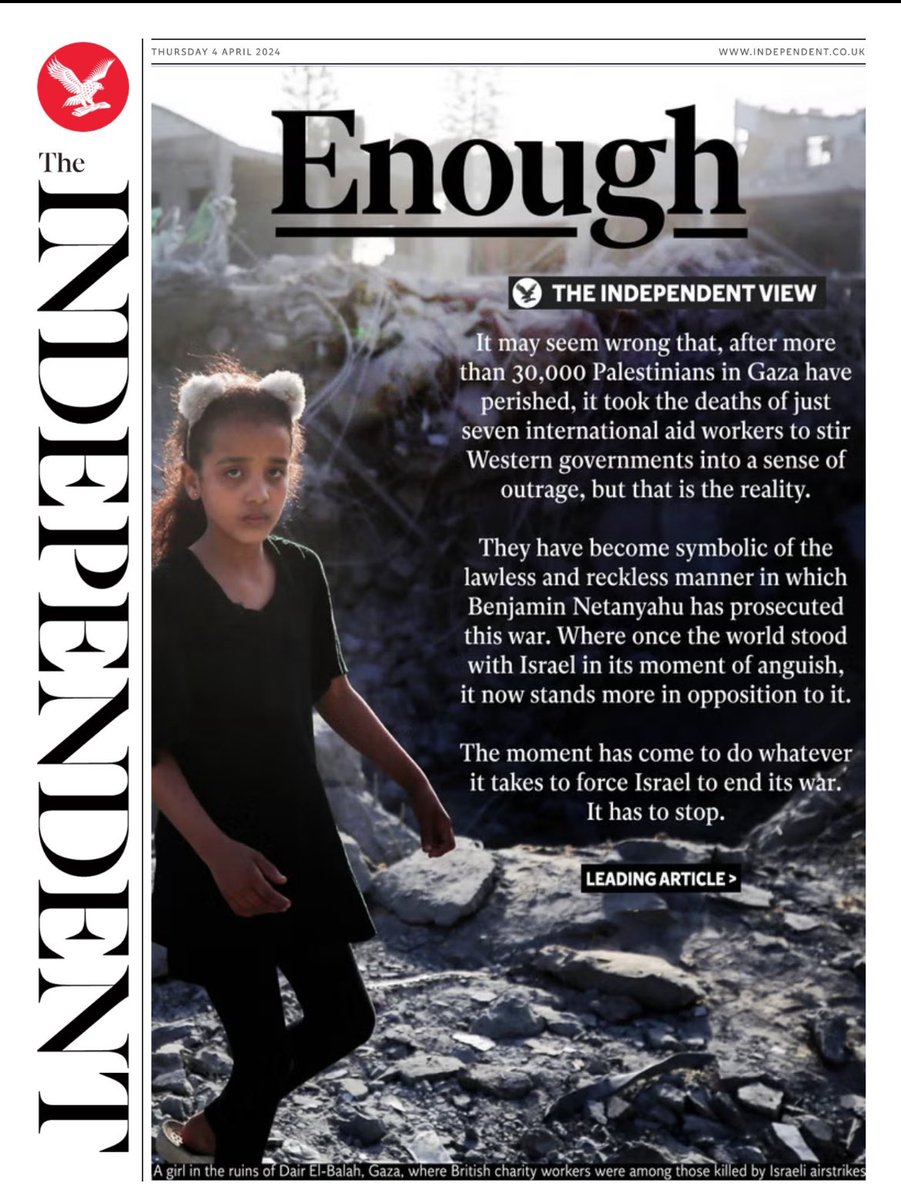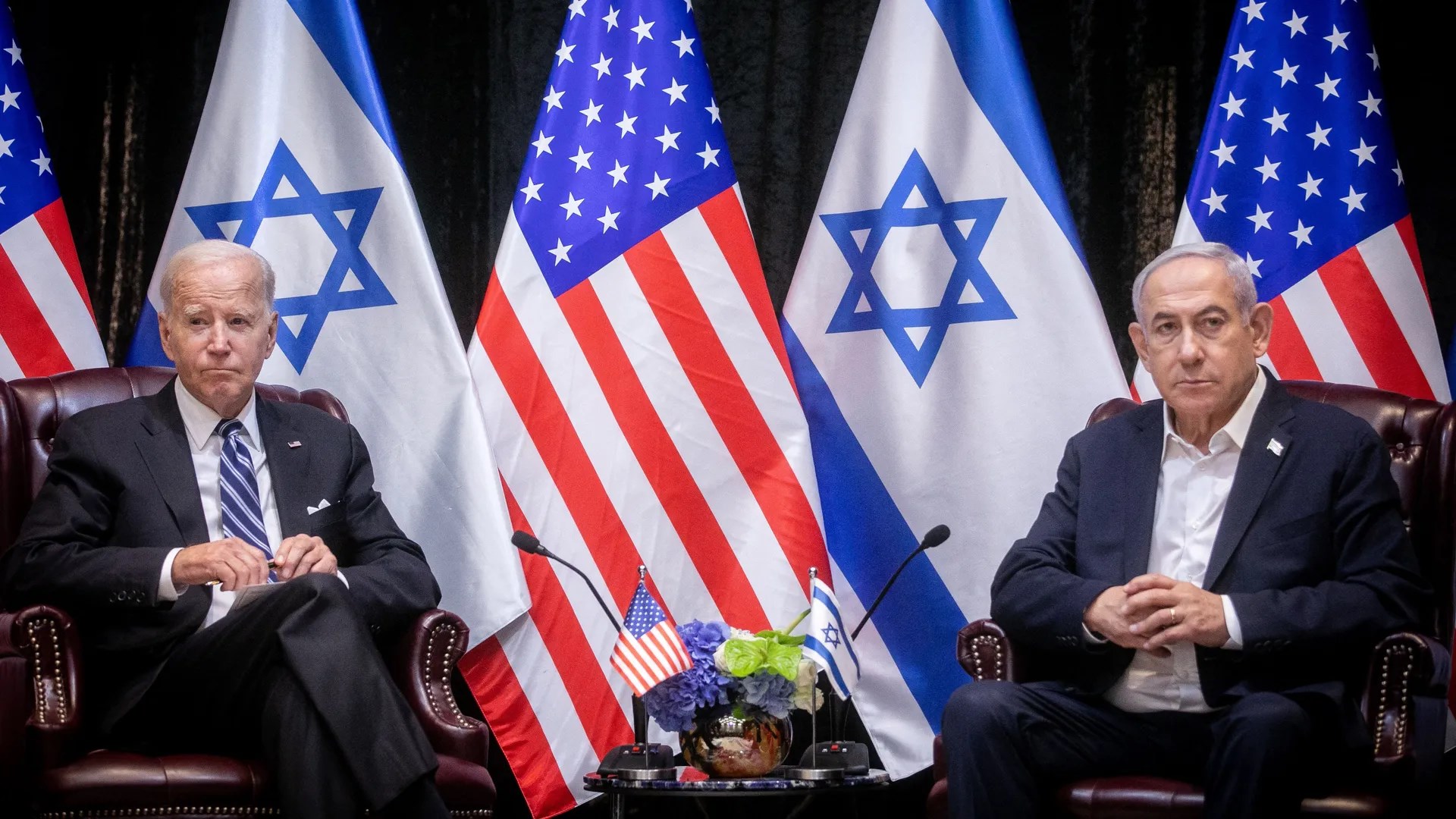‘Thoughts, prayers…and phone calls’ over civilian killings in Gaza

In years past, every mass shooting in the United States would be accompanied by “thoughts and prayers” messages from politicians who had no intention of doing anything about gun control legislation.
Unsurprisingly “thoughts and prayers” became something of a meme, black humour to round off the relentless and tragic taking of human life.
In Gaza, where mass civilian casualties and the starving of a whole population approaches its grim six-month anniversary on Sunday, April 7, “thoughts and prayers” have another bit tacked on: phone calls.
Urgent phone calls from world leaders to Israeli officials, starting with Prime Minister Benjamin Netanyahu and moving all the way down the food chain to his envoys in world capitals.
This has ramped up since the killing on April 1 of seven World Central Kitchen (WCK) aid workers in an Israeli air strike in Gaza.
But, the sum and substance of international outrage boils down to…not very much. Consider this:
- US President Joe Biden’s phone call with Israeli Prime Minister Benjamin Netanyahu on April 4, seeking speedy change in Israel’s actions in Gaza. The ramifications of Israeli inaction on Mr Biden’s request have not been spelt out.
- Australian Prime Minister Anthony Albanese’s phone call with Mr Netanyahu to express his country’s anger and outrage over the killing of Australian aid worker Lalzawmi “Zomi” Frankcom in that air strike. What, if anything, Australia can or will do about it remains unclear.
- Polish Foreign Minister Radoslaw Sikorski’s demand for an independent investigation into the incident from his Israeli counterpart Israel Katz on news that Polish Damian Sobol was killed in the attack. Other than a diplomatic contretemps, it’s not apparent how Poland’s horror will effect change.
- Canadian Prime Minister Justin Trudeau’s call for “full accountability” for the death of US-Canadian national Jacob Flickinger, adding that it was “absolutely unacceptable for aid workers to be killed” by the Israel Defence Forces. Canada doesn’t say what it might do if Israel persists with such “unacceptable” actions.
- The UK summoned Israel’s ambassador Tzipi Hotovely to the Foreign Office, the first time this had happened in 12 years. Three British nationals died in the air strike. Many might say a metaphorical dressing down for a foreign envoy is pretty ineffectual.
It’s striking that there hasn’t been anything like so high-profile a thoughts, prayers and phone calls intervention on behalf of the seventh WCK member who died in the Israeli attack – Palestinian aid worker Saif Issam Abu Taha. True, his photo has been circulating in the media and the rituals of grief over the untimely, unnecessary and tragic deaths of the WCK aid workers encompass Taha as well. But it’s fair to say, in life as in death, he appears more orphaned than his WCK colleagues in terms of prominent champions.
Finally, there was that moving front page of British newspaper The Independent. It was powerful enough. But not powerful enough to go beyond thoughts and prayers…and yes, finger-wagging.
Thoughts and prayers 2.0?





